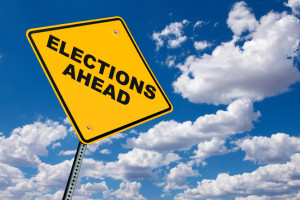 By Steve Brawner, © 2019 by Steve Brawner Communications, Inc.
By Steve Brawner, © 2019 by Steve Brawner Communications, Inc.
Let’s say you’re headed into your second midterm election before being term-limited out of office, and you really don’t have much to campaign for. Your party controls Arkansas’ entire congressional delegation and three-fourths of the state Legislature now, which won’t change much regardless of what you do.
How do you spend your time? If you’re Gov. Asa Hutchinson, you try to persuade Arkansans to extend a half-cent sales tax to pay for highways.
Speaking last week to the Arkansas Good Roads Foundation, Hutchinson said, “This is my number one priority in terms of a state campaign here in Arkansas. Not anything gonna distract me from it. This is a focus because it is so critical to the future of our state.”
He later told a couple of reporters he might support the effort with money from his political action committee, ASA PAC.
Hutchinson led this year’s legislative effort to ask voters next November to approve a constitutional amendment permanently extending the half-cent sales tax for highways. The 10-year tax is funding the Connecting Arkansas Program, a $1.8 billion four-lane construction effort. It was approved by 58% of the voters in 2012 and expires in 2023.
If the extension passes, it would provide $205 million annually to the Arkansas Department of Transportation (ARDOT) and $43 million each to cities and counties. ARDOT would use the money primarily for system preservation and maintenance and also would create a second Connecting Arkansas Program. Cities and counties would be hit hard if the tax fails. For them, it’s been new money in the bank, and they’ve grown accustomed to it.
ARDOT really, really wants this to pass. I’ve heard numerous presentations by officials explaining how its funding has remained flat while other state priorities have gotten more money. Meanwhile, the department’s construction costs have increased while gas tax revenues haven’t kept up. As cars become more fuel-efficient, motorists purchase less gas, and therefore they pay less in taxes.
ARDOT has been talking about this situation for years, but Hutchinson hasn’t really stuck his neck out for highways until now. Other priorities – cutting taxes, attracting business to Arkansas, maintaining the state’s Medicaid expansion, and even his high school computer science class initiative – have taken precedence. But this year and next, he’s making highways a primary focus.
Hutchinson told the Good Roads Foundation that a poll by the Gilmore Strategy Group found that 62% of likely voters either would support or probably would support the extension. That’s about the same as the 58% who supported the tax in 2012. Given a list of reasons to support it, respondents most often were favorable to the idea that it would improve highways in every corner of the state.
In addition to Hutchinson, the initiative is supported by many of the state’s most prominent business groups. The Roads and Bridges Coalition includes the Good Roads Foundation, Arkansas State Chamber of Commerce, Arkansas Farm Bureau and others, as well as the Arkansas Municipal League (which represents cities) and the Association of Arkansas Counties.
In other words, there will be plenty of money for pro-tax extension political ads, some of them surely starring Hutchinson.
Opponents will include anti-tax organizations like Conduit for Action along with local small government advocates across Arkansas. They probably won’t be organized and probably won’t have money for an ad campaign, but they will be vocal.
There’s no governor’s race and the Democrats don’t have an opponent for Sen. Tom Cotton, so this may be the highest profile campaign in Arkansas next year – other than the presidential race, which will overshadow everything even though the candidates will ignore this very red state.
In the end, the extension probably will pass, with support ranging somewhere around the 58% who voted for the tax in 2012 and the 62% who said they’d probably vote for it this year.